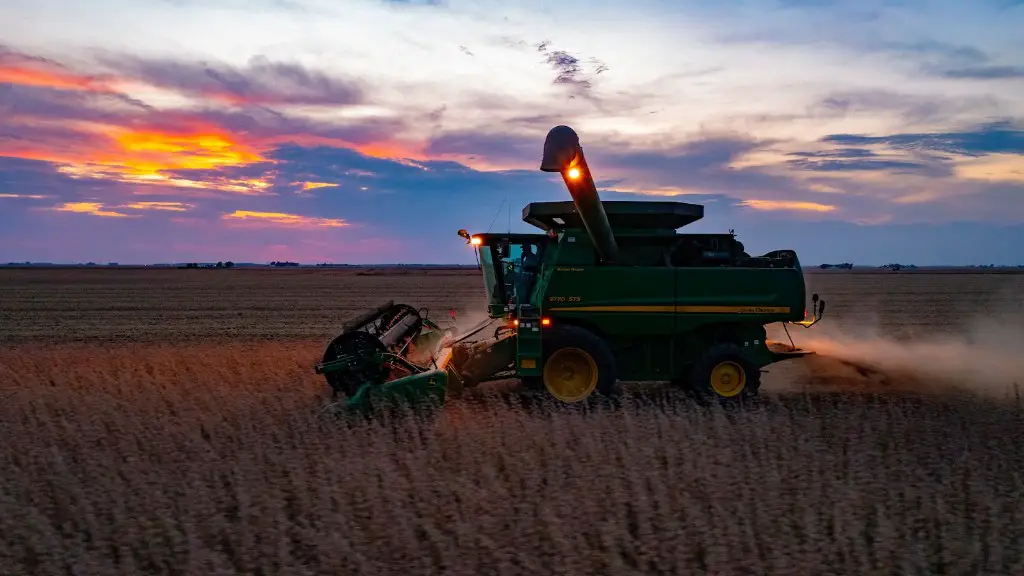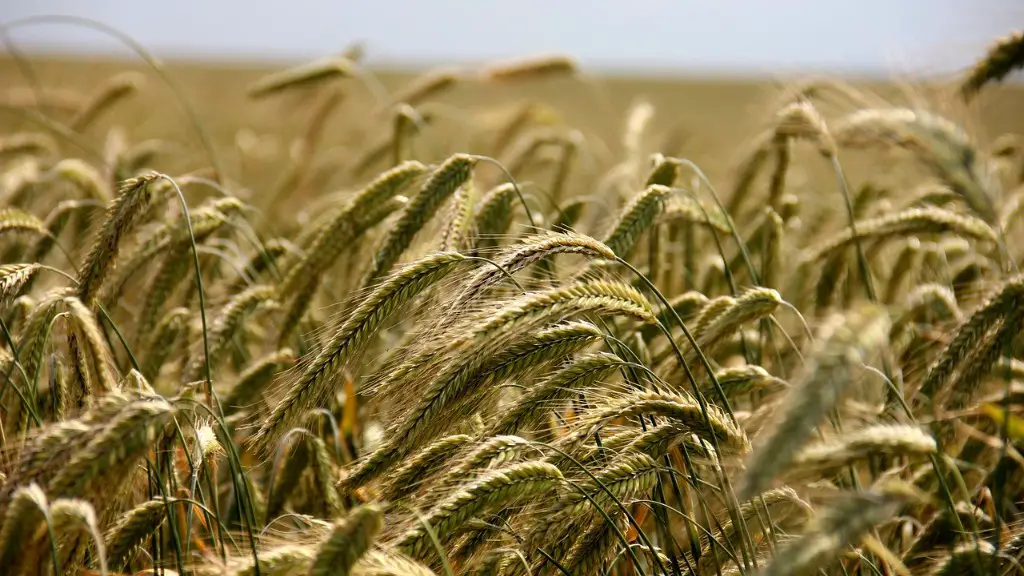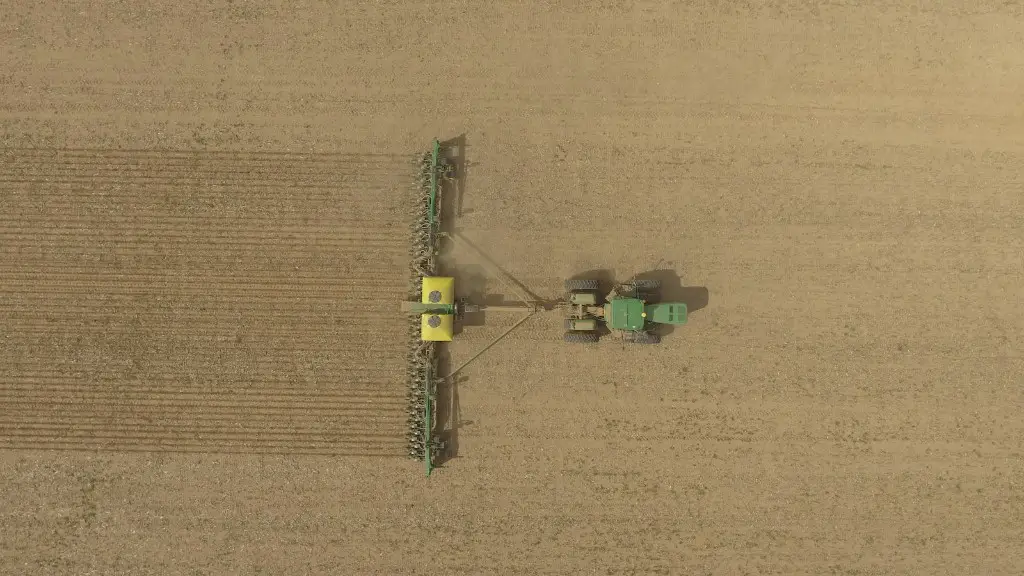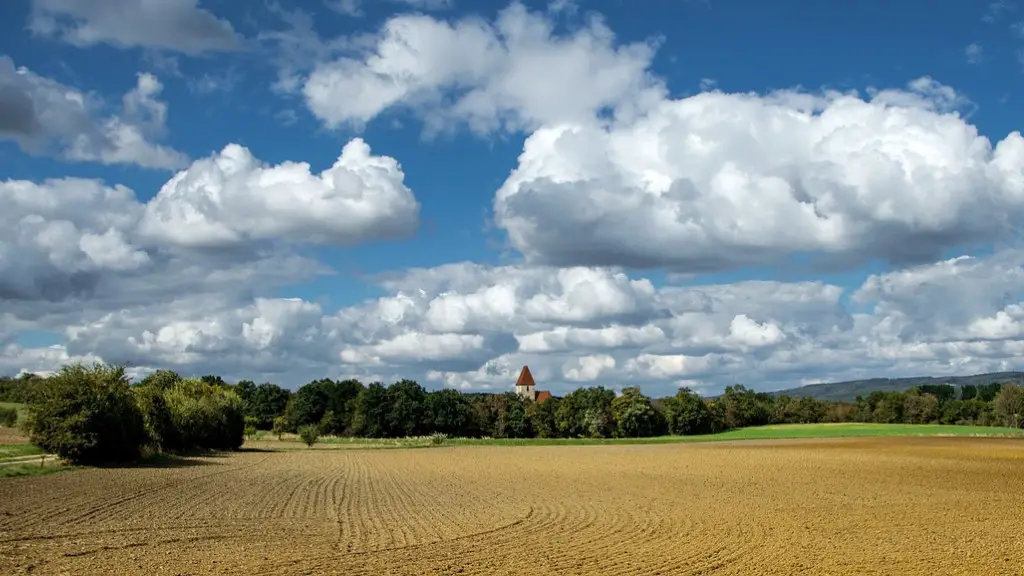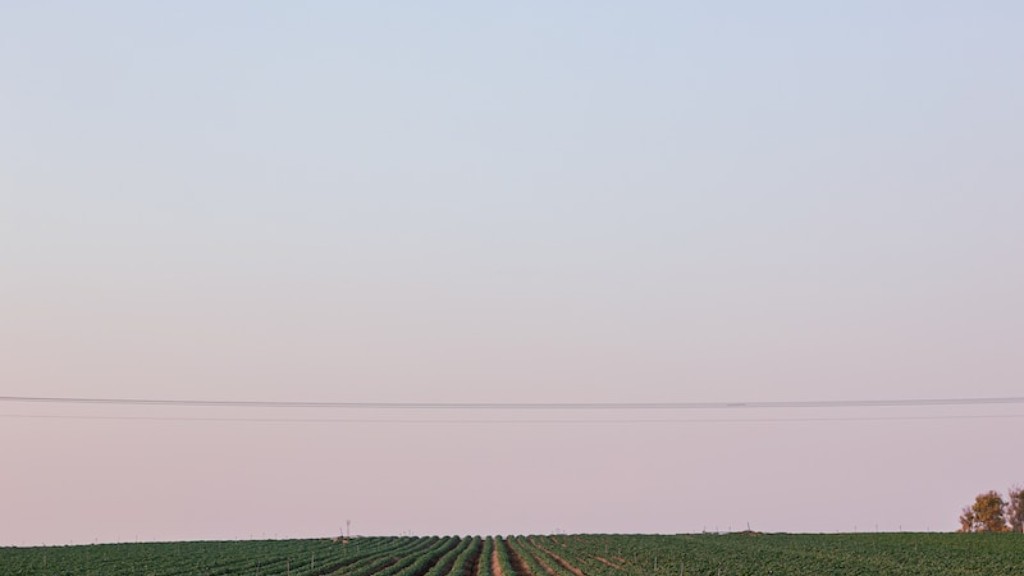The main benefit of sustainable agriculture is that it is a more environmentally friendly way of farming. This is because sustainable farmers use methods that help to conserve water and soil, and they also don’t use synthetic pesticides and fertilizers. The end result is that sustainable agriculture is better for the environment overall. Additionally, sustainable agriculture can also help to support local economies, as well as provide better working conditions for farmers.
Sustainable agriculture is good for the environment because it is a type of agriculture that focuses on producing food in a way that does not damage or degrade the environment.
What are 3 benefits of sustainable agriculture?
There are a number of ways to increase profitable farm income while promoting environmental stewardship and enhancing quality of life for farm families and communities. One way is to increase production for human food and fiber needs. This can be done by increasing the yield of crops, improving crop quality, or both. Another way to increase farm income is to diversify farm operations to include value-added products or services. This could involve processing raw materials into finished goods, providing agritourism or other recreational services, or offering educational programs on farming and food production. Diversification can help to insulate farms from fluctuations in commodity prices and provide a steadier income stream.
Sustainable agriculture is important for preserving the earth’s natural resources, as well as for maintaining soil quality, reducing erosion, and preserving water. These benefits help to protect the environment and improve the quality of life for all people.
What sustainable agriculture is important
There are many ways that farmers can conserve the environment and prevent pollution. By adopting sustainable practices, farmers will reduce their reliance on nonrenewable energy, reduce chemical use and save scarce resources. Keeping the land healthy and replenished can go a long way when considering the rising population and demand for food.
Sustainable agriculture is a type of agriculture that focuses on producing long-term crops and livestock while protecting the environment. Sustainable agriculture is often done using organic farming methods, which means avoiding the use of synthetic chemicals and genetically modified organisms.
What are the pros and cons of sustainable agriculture?
Sustainable agriculture has many advantages, such as reducing costs, controlling air and water pollution, and preventing soil erosion. It also promotes biodiversity and social equality. However, it also has some downsides, such as the fact that it takes farmers longer to carry out their operations.
Sustainable development is a process that meets the needs of the present without compromising the ability of future generations to meet their own needs. It is a process that ensures that natural resources are used in a way that does not damage the environment and that they are replenished at the same rate at which they are used. Sustainable development is a way of living that meets the needs of the present generation without compromising the ability of future generations to meet their own needs.
What are the positive environmental impacts of agriculture?
The concept of urban farming is not new, but it is becoming increasingly popular as the benefits of this type of farming are becoming more and more acknowledged. Some of the main benefits of urban farming include lower greenhouse gas emissions, minimal transportation requirements, and reduced energy use for food production.
City dwellers are typically far removed from the process of food production, and as a result, they are often unaware of the significant amount of energy and resources that are required to produce the food they consume on a daily basis. However, by growing their own food, even on a small scale, urban dwellers can drastically reduce their carbon footprints.
In addition, urban farming can also help to alleviate some of the negative impacts of the industrial food system, such as food insecurity and obesity. By producing food locally, urban farmers can help to ensure that everyone has access to fresh, nutritious food. And by growing vegetables and fruits, rather than processed foods, urban farmers can help to combat the obesity epidemic.
Urban farming is not a silver bullet for all of the world’s problems, but it is a step in the right direction. If we want to create a more sustainable and just world, we need to start supporting urban farmers.
Agricultural solutions to climate change can have a huge positive impact on our environment. They can help increase crop yields, improve air and water quality, and enhance wildlife habitat. They can also help us adapt to weather extremes and make our farms more resilient. All of these benefits make agricultural solutions to climate change a great option for us to consider.
What are 3 effects of agriculture on the environment
Large-scale, conventional farming is not sustainable in the long term. It focuses on intensive single crop production, mechanization, and depends on fossil fuels, pesticides, antibiotics, and synthetic fertilizers. While this system yields high production levels, it also contributes to climate change, pollutes air and water, and depletes soil fertility.
LIn the last fifty years, technological advances and more efficient production practices in the agricultural sector have led to significant increases in agricultural Total Factor Productivity (TFP). TFP growth has contributed to poverty reduction, increased food security, decreased land expansion and associated biodiversity loss, and mitigation of greenhouse gas emissions.
Agricultural TFP growth has supported economic growth more broadly, putting money in farmers’ pockets and boosting rural economies. In the future, Agricultural TFP growth could play an even more important role in achieving Sustainable Development Goal 2 (Zero Hunger) and SDG 12 (Responsible Consumption and Production), as well as helping to meet targets for climate change mitigation.
What are 3 reasons why agriculture is important?
1. Agriculture is the main source of raw materials for industries.
2. It is important to international trade.
3. It plays a big role in a nation’s revenue.
4. It provides employment.
5. It’s crucial to a country’s development.
6. It can help heal the environment.
7. It goes hand-in-hand with war.
8. It can help reduce poverty.
There are many ways that farmers can enhance environmental quality and natural resources. Farmers can use nonrenewable resources more efficiently by taking better advantage of on-farm resources. They can also employ natural and biological controls for pests and disease.
What are the benefits of environmental sustainability
The push for energy independence and net zero emissions is gaining momentum as the costs of renewable energy continue to fall and the public becomes more aware of the environmental impact of fossil fuels. Investing in renewable energy not only helps to reduce your carbon footprint, but can also stabilize energy costs over time and add value to your property. Incentives and tax credits can further reduce the costs of going green, making it an increasingly attractive option for businesses and homeowners alike.
There are many ways that farmers can be more environmentally friendly. One way is to reduce soil tillage which helps to preserve soil structure and helps water to be absorbed better. Another way is to rotate crops which helps to keep the soil from becoming depleted of nutrients. Farmers can also use low-pressure irrigation which uses less water. Planting cover crops can also help to protect the soil and support pollinators. Finally, farmers can recycle plastics and change to LED lightbulbs to save energy.
What are 3 sustainable agricultural practices?
Sustainable agriculture practices are those that are used to produce food and fiber in a way that is environmentally responsible, economically viable, and socially just. There are many sustainable agriculture practices, but some of the most common include rotating crops, planting cover crops and perennials, reducing or eliminating tillage, and applying integrated pest management. Many sustainable farmers also integrate livestock and crops, adopt agroforestry practices, and manage whole systems and landscapes.
The topic of sustainable development is one that is very important to me and my company. We strive to create products that help accelerate more sustainable lifestyles and create sustainable infrastructure. In addition, we are very efficient in our use of resources and have high recycling rates. We are also a trusted user of air, land and water. Lastly, we are a responsible energy user that helps create a lower carbon future.
What are the two main objectives of sustainable agriculture
Farms are a vital part of the environment and natural resources of any country. They provide food, fiber, and other necessary products to the people of that country. In order to protect and enhance the environment and natural resources, it is important to protect the economic viability of farming operations. There are a number of ways to do this, including providing subsidies and other financial assistance to farmers, investing in research and development to improve farming practices, and creating incentives for farmers to adopt environmentally friendly practices.
There are many advantages to sustainable communities. They are good for the environment, social well being, resource efficiency, property value, and long-term investment.
Final Words
There are many ways in which sustainable agriculture is good for the environment. Perhaps the most obvious is that it helps to preserve and enhance the quality of the natural resources upon which agriculture depends – soil, water, and biodiversity. It also helps to reduce pollution and to mitigate the greenhouse gases that contribute to climate change.
Sustainable agriculture also has an important social dimension. Small-scale farmers, who are often the stewards of traditional knowledge and practices, are key players in promoting sustainable agriculture. By keeping farming families on the land, sustainable agriculture can help to reverse the trend of rural depopulation and Yo preserve the cultural heritage of rural communities.
Sustainable agriculture is good for the environment for a number of reasons. It helps to conserve water and soil resources, and reduces the use of chemical inputs. Sustainable agriculture also supports biodiversity and helps to preserve traditional seed varieties. In addition, sustainable agriculture can help to mitigate and adapt to climate change.
